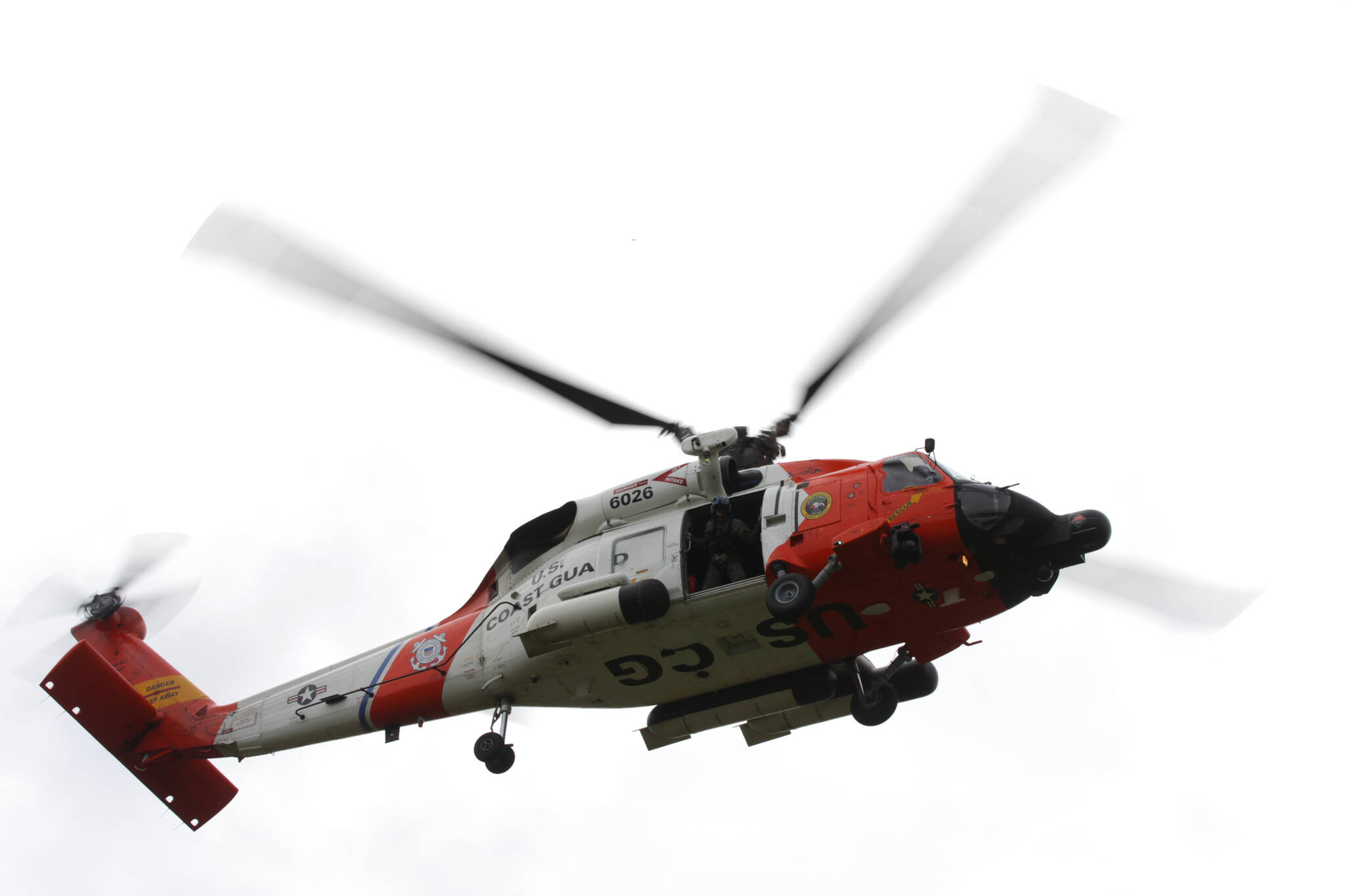A 911 call from a group of kayakers to emergency services after one of their group fell in the water Wednesday night while fighting the tide ended with Coast Guard aircrew rescuing them from the tidelands on the Elk River near Bay City.
The Grays Harbor Communication 911 Center relayed the call to the Coast Guard when it came in after 8 p.m. Wednesday night, said Coast Guard spokesperson Petty Officer 2nd Class Steve Strohmaier.
“Around 8 p.m., Sector Columbia River received a 911 relay,” Strohmaier said in a phone interview. “Grays Harbor Dispatch asked for assistance via helicopter since it was marshy.”
Four kayakers, three of them from the East Coast visiting family, had set out at approximately 3 p.m., said Undersheriff Kevin Schrader of the Grays Harbor County Sheriff’s Office.
“They went out in kayaks and the tide shifted on them. They weren’t able to paddle against the tide,” Schrader said in a phone interview. “One had flipped over. They were stranded on the tide flats.”
The sheriff’s office sent their boat crew to the scene, Schrader said.
“We took a boat to the scene but did not actually launch the boat,” Schrader said. “While enroute Coast Guard told us they were bringing in the helicopter so we ended up not launching.”
The aircraft, an MH-60 Jayhawk from Coast Guard Air Station Astoria, had been on a training exercise and immediately diverted to refuel and assist with the rescue, Strohmaier said.
“They were on-scene to do the hoist at 10 p.m. local. They landed at (Coast Guard Station) Grays Harbor at 10:30 p.m.,” Strohmaier said. “Three people were able to go home with a family member. One person was taken to a local hospital for hypothermia.”
A nighttime hoist in the marshlands was a little unusual for regular search and rescue calls in the region, Strohmaier said.
“Usually, we’re not pulling out kayakers from marshlands at 10 p.m. at night,” Strohmaier said. “We usually get calls like this during the day.”
The sheriff’s office handles a few of these calls every year, Schrader said.
“The sheriff’s office probably ends up responding to 10-15 rescues in a year,” Schrader said. “Anything from kayakers to boats.”
A few simple precautions can help reduce the likelihood for the need for a helicopter ride with the Coast Guard, Strohmaier said.
“Definitely tell somebody on land where you’re going, when you’re going to be back. That’s one of the biggest things, having a float plan,” Strohmaier said. “Being aware of incoming and outgoing tides is vital.”
Dressing for the weather, wearing a life jacket, and having a signaling device like a flashlight or flares are all strongly recommended, Schrader said.
Contact reporter Michael S. Lockett at 757-621-1197 or mlockett@thedailyworld.com.



